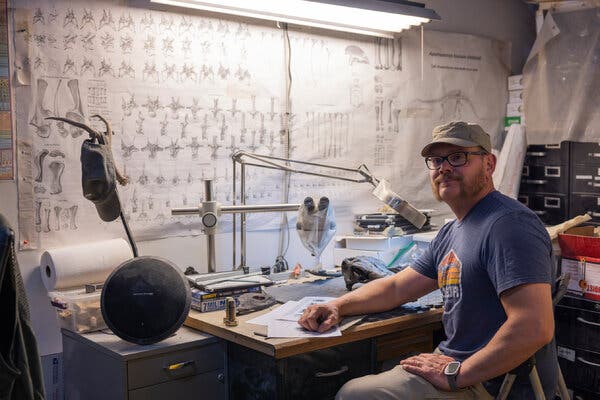In May 2022, Jason Cooper, a commercial paleontologist, went for a walk around his property near the aptly named Colorado town of Dinosaur with a friend and found a bit of femur protruding from some rock.
That femur led to a stegosaurus fossil, among the largest and most complete ever found, which has subsequently been nicknamed “Apex.” In July the Sotheby’s auction house will sell Apex at auction at an estimated value of $4 million to $6 million, making the skeleton the latest flashpoint in a long-running debate about the private fossil trade.
Dinosaur fossils have fetched escalating prices at auction houses since 1997, when Sotheby’s sold “Sue” the Tyrannosaurus rex to the Field Museum in Chicago for $8.36 million. In 2020, “Stan,” another largely complete T. rex skeleton, sold at Christie’s for $31.8 million.
Such pricing has raised serious concerns among academic paleontologists, said Stuart Sumida, vice president of the Society of Vertebrate Paleontology. Many of them have watched fossils that may unlock scientific mysteries get steered into the hands of wealthy private collectors rather than toward research institutions in recent decades.
Mr. Cooper and his colleagues unearthed the Sotheby’s-bound stegosaurus in 2023. Digs on his property have yielded a number of Jurassic period dinosaurs, several of which Mr. Cooper has donated to institutions like the Brigham Young University Museum of Paleontology in Provo, Utah, and the Frost Museum of Science in Miami.
